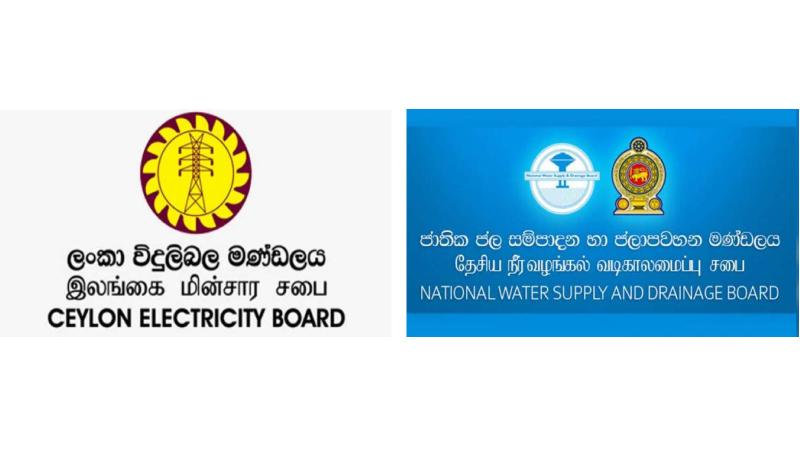
In a recent advertisement on Television, the Ceylon Electricity Board (CEB) made an earnest request from the public. They invited the people to pay at least a part of their monthly electricity bill supporting the CEB to continue the power supply. The CEB, a state-owned entity which is already run with huge losses (with billions of debts to the Petroleum Corporation), was forced to do so as it struggled with a brand new set of challenges posed by Covid-19 pandemic.
 As the country began to come out of lockdown, despite having own woes to overcome, the utilities sector would be looked upon to make amends for the customers.
As the country began to come out of lockdown, despite having own woes to overcome, the utilities sector would be looked upon to make amends for the customers.
Electricity
A few weeks ago, Minister of Power and Energy Mahinda Amaraweera said that the Ministry, after a discussion with the CEB, decided to allow electricity consumers to pay their March and April bills in several installments. The Ministry had taken this decision following back to back inquiries from consumers about their electricity bills.
The people worried about payment methods and also the amount of the bill during the curfew in March and April. There were rumours that a fine will be charged if the electricity bill was not paid on time and there were thousands of inquiries about bill payment methods.
The subject minister and the CEB debunked all those rumours and introduced a payment method without reading the meter. The CEB requested the public to pay the electricity bill, matching with the previous bill. For instance, if a consumer received a bill of Rs 1,000 for February, the CEB expected the consumer to pay the same amount for March and also for April.
Chairman of CEB Eng. Vijitha Herath was not available for comment.
Water
The National Water Supply and Drainage Board (NWSDB) issued an estimated bill for the past two months taking the average of previous months (November, December and January) into account.
Additional General Manager (Corporate Services) of the NSWDB, Wasantha Illangasinghe told the Sunday Observer that they are not in a position to provide further concessions to the public as the board is already providing the water supply in a lower price.
“To generate one cubic meter of water, our cost is about Rs. 43, while we provide it to domestic users for just Rs. 12,” she said.
She added, “We have issued water bills to almost all consumers except in the Colombo, Kalutara, Gampaha and Puttalam Districts. We are aware that most of the people, except daily wagers, received their monthly salary even they stayed at home. We kindly request them to pay the estimated bill as soon as possible”.
Due to Covid-19 situation, the NWSDB has not been able to collect monthly payments, as usual, resulting in a drop of 75 percent of the monthly income. The NWSDB expects to receive Rs. 700 million from the General Treasury to carry out operations the next month.
Daily wage earners
Civil activists, such as Ranjith Vithanage of the Consumer Rights Protection Movement, urged the Government to collect payments through installments. “We understand that the CEB is also facing difficulties due to this situation. But at least they have to give some concession like installment basis payment method to the daily wage earners who could not engage in their occupation in the last few weeks,” he said.
As per the statistics of the National Three-Wheeler Federation, there are about 850,000 three-wheeler drivers in Sri Lanka. They have been severely affected by the pandemic and curfew. Sunil Jayawardena, the President of the Federation said that some of them have not received the Rs. 5,000 allowance distributed by the Government.
“We do not blame the President or the Government. It is the Government officials who are not carrying out instructions of the Government. For instance, even the Government announced a concession on vehicle leasing installments, our three-wheeler drivers are yet to receive that concession,” he said.
He added, “We request the Government to implement a mechanism to ease the utility bill payments of the daily wage earners, such as three-wheeler drivers. Even though they could not engage in their occupation, they are supposed to pay all utility payments, such as house rent, electricity and water bills within the next few weeks”.
